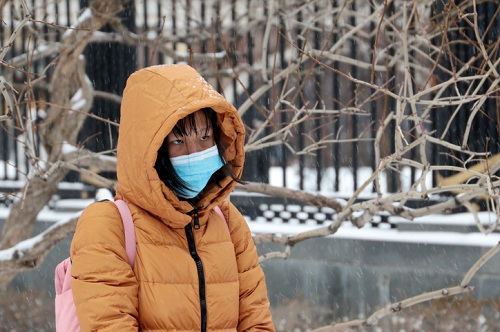
The stigma created by the spread of the coronavirus – and the Federal Government’s attempts to prevent its spread in Australia – could have a negative long-term impact on Australia’s lucrative international student market, warns the president of the peak body representing Australia’s international students.
Earlier this month, the Federal Government suspended all travel from mainland China to Australia in response to the outbreak of the virus. The measure applies to everyone except Australian citizens, permanent residents and their families, until further notice.
However, this has the potential to drive prospective students away from Australia’s lucrative international student market, warns Council of International Students Australia (CISA) president, Ahmed Ademoglu.
“There are serious concerns right now around incidents discrimination and racism towards anyone who looks Chinese,” Ademoglu told The Educator.
“We’re raising these concerns and trying to facilitate a discussion around implementation methods and good practice examples to fight that discrimination in the long term, and this will happen in classrooms as well”.
Chinese students ‘traumatised’
Ademoglu said another long-term issue that could arise is that students might avoid part of group assignments and other projects that include Chinese international students out of fear they might be infected by the coronavirus.
This issue is also being seen in the broader community, Ademoglu said.
“In share houses and homestay accommodation, some students are seeing the impact of this already, with Chinese people being offered plastic cutlery and masks,” he said.
“This puts them in a traumatising situation. Currently, 100,000 students are impacted by the travel ban because they’re overseas trying to get into Australia. Some students couldn’t attend their graduation ceremony, and others have semesters starting but don’t know what will happen”.
CISA is encouraging the Federal Government to be empathetic and respectful in their conversations with Chinese international students rather than the “strict” language – such as ‘quarantine’ and ‘detention’.
“This is quite scary language to many international students, so I think we should treat the situation very carefully,” he said.
“We have already had education agents saying they will start encouraging international students to study in countries other than Australia”.
‘Turning chaos into opportunity’
Ademoglu said the Global Reputation Taskforce has had “good collaborations” with the Federal Government in their discussions about the coronavirus outbreak.
“In our meetings, we have been encouraging the Federal Government to turn chaos into opportunity in the wake of this crisis,” Ademoglu said.
“Because we’re in a very difficult situation and we’re not the only country affected, we were encouraging discussions around global recognition of our degrees, our subjects and risk management around international education”.
Ademoglu said it will be “tricky” if Chinese students – who represent 35% of Australia’s total international student intake – are deterred from continuing their studies in Australia.
“We see a significant risk in this respect. We’re trying to have constructive conversations, but when the Federal Government is not getting back to us on time – because it’s a timely issue – things are likely to get tricky,” he said.
“CISA is a membership-based organisation and our members expect solutions, so when we’re telling them that we’re collaborating with the government and the government doesn’t cooperate, then we can’t justify our actions to our members”.
Travel restrictions angering VIPs
Ademoglu said some the international students affected are the children of “important and powerful influencers” overseas.
“We heard a lot of disappointment from Chinese international students, and this is important because word of mouth is very important to the sector,” he said.
“Some of these international students are children of influencers and very powerful and important people overseas, so I’m worried about the impact this might have on trade and our diplomatic relationships”.
Ademoglu said the son of a “significant influencer” overseas was recently detained at an Australian airport, sparking some uncertainty about the fallout.
“So, we need to encourage more empathy and respect around those who are being affected by this crisis,” he said.
“We had great empathy from countries all around the world during our bushfire crisis. People were sending their sympathies and love to Australia. China is in a similar situation, so this is something we need to be mindful of. Chinese people are going through a rough time, and none of this is their fault”.


